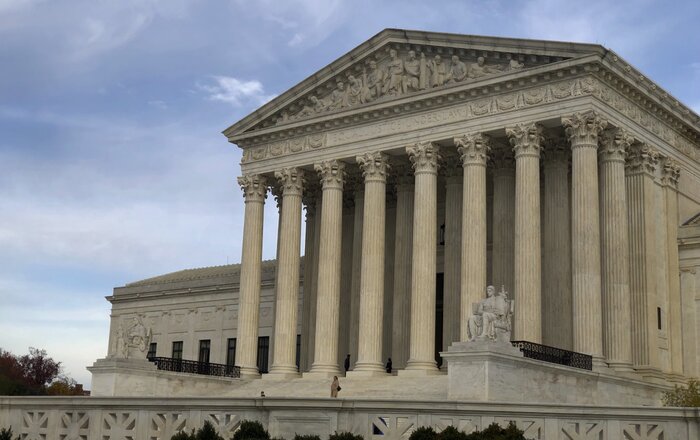
Originally published here.
Pennsylvania’s Clean Slate law was a big step toward justice that still somehow doesn’t address the worst part of the state’s expungement laws–the awful years in which the criminal record haunts those who have paid their debt for minor offenses. But rather than recognize this, lawmakers are making minor concessions, such as offering expungement upon a full pardon or removing the requirement that court fees and fines be paid first.
Despite clearing 35 million records in one year, Pennsylvania still ranks as one of the toughest states for granting an expungement—the technical term for clearing a criminal record. This holds the state back both in terms of enacting justice for those who’ve paid their debt, but also from realizing the full economic gains that come from fair expungement laws.
A comprehensive expungement study by the legal experts at Rosenblum Law found that, out of the 42 states that allow someone to clear a criminal record, Pennsylvania’s laws are sixth-most restrictive when looking at minor offenses such as shoplifting. This is based primarily on two key factors: the length of time a person must wait before petitioning for an expungement, and the cost of filing the petition.
Most expugnable offenses are low-level, non-violent offenses, such as disorderly conduct, trespassing, and shoplifting. They are, for the most part, minor transgressions—mistakes of youth or moments of lapsed judgment. The punishment for many is less than two years. Yet Pennsylvania’s five-year waiting period for a petition (10 years for Clean Slate) unjustifiably extends the punishment for the offense or offenses in question.
Once a sentence is completed, a low-level offender is still dogged by a host of burdens, preventing one from getting back on their feet and turning their life around. This includes limitations on housing, losing or being denied professional licensing, and struggling to find decent-paying jobs. According to the Prison Policy Institute, the unemployment rate among the formerly incarcerated is 27%, and they are 10 times more likely to end up homeless.
These hardships are most pronounced among minorities and the poor. Approximately 60% of people in state prison for drug offenses are black or Latino. This is despite the fact that whites and minorities sell and use drugs at about the same rate.
Once time has been served, African American job applicants find themselves twice as likely as white applicants to lose a job over the same conviction. Two separate studies (here and here) by the National Institute for Justice found that only 5% of African Americans with convictions received callbacks for jobs, compared to 17% of white Americans with convictions. Overall, having a criminal record reduced the likelihood of getting a job by two-thirds for African Americans. Hispanic and Latino Americans suffer similarly for a criminal record.
The five-year waiting period for an expungement petition and 10-year period for Clean Slate act as de facto extensions of the sentence itself—sentences that are often less than two years!
Expungement reform isn’t just about those who wish to turn their lives around—it’s a path to a more prosperous and safer community for everyone. A report by the Economy League of Greater Philadelphia shows that helping 100 formerly incarcerated individuals find jobs would yield $1.9 million in additional taxable wage contributions and $800,000 in additional sales tax revenues over the employees’ lifetimes. The sooner a person can get a job after release, the less likely he or she will re-offend, reducing crime rates over time. If making jobs and housing more accessible to individuals results in 1,500 fewer recidivists (those who re-offend), the state could close one prison facility, which would result in an annual cost savings of more than $26 million to taxpayers.
Pennsylvania is heading in the right direction, but it’s time to make more meaningful reforms to its expungement law. Neighboring New Jersey offers opportunities to clear records as soon as three years after time served, while Georgia allows a petition to be filed immediately upon completion of sentencing. Pennsylvania state lawmakers must realize that a key element of criminal justice reform is expungement reform; we must better redress the burden that antiquated criminal justice laws have placed on members of our society.

Editorial Standards
Rosenblum Law is committed to delivering informative content of the highest quality. All content is subject to our rigorous editorial standards for relevance, accuracy, sourcing, and objectivity. Everything is fact-checked by an editor and reviewed for legal soundness by one of our practicing attorneys prior to being published.
How to Cite Rosenblum Law’s Article
APA
Adam H. Rosenblum (Mar 31, 2023). Traveling With a Criminal Record. Rosenblum Law Firm, https://rosenblumlaw.com/traveling-with-a-criminal-record/
MLA
Adam H. Rosenblum "Traveling With a Criminal Record". Rosenblum Law Firm, Mar 31, 2023. https://rosenblumlaw.com/traveling-with-a-criminal-record/











